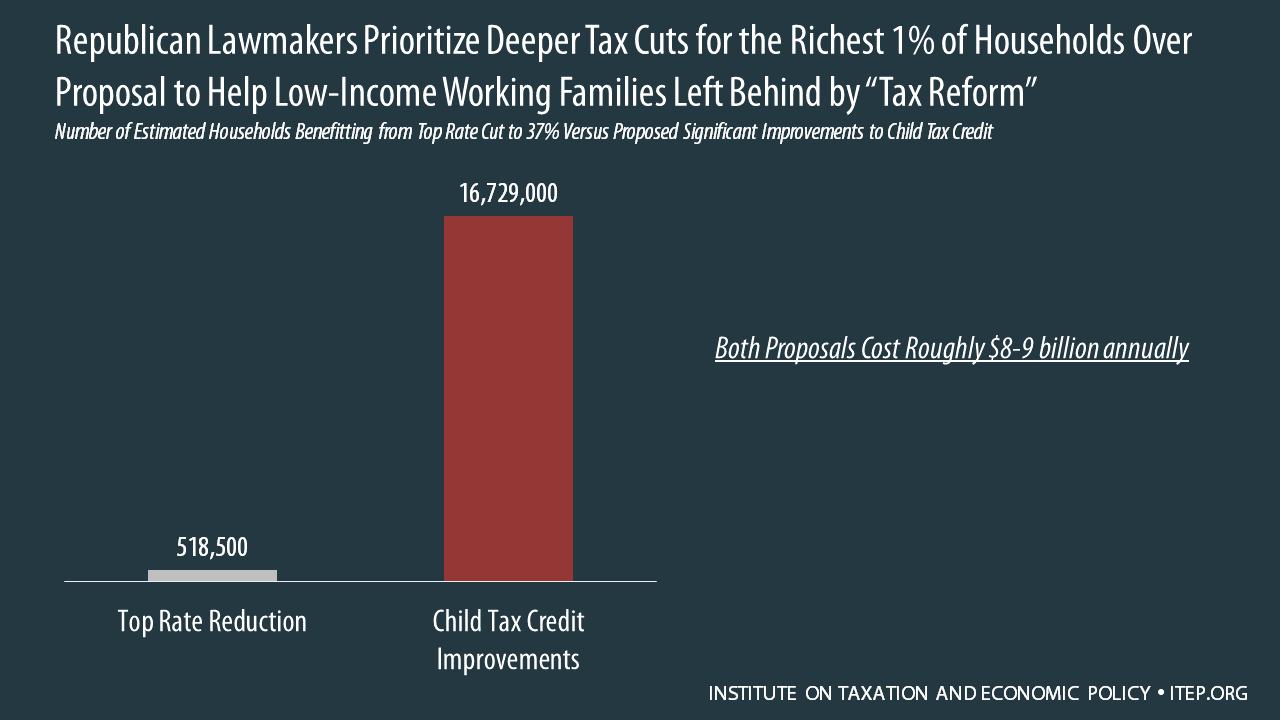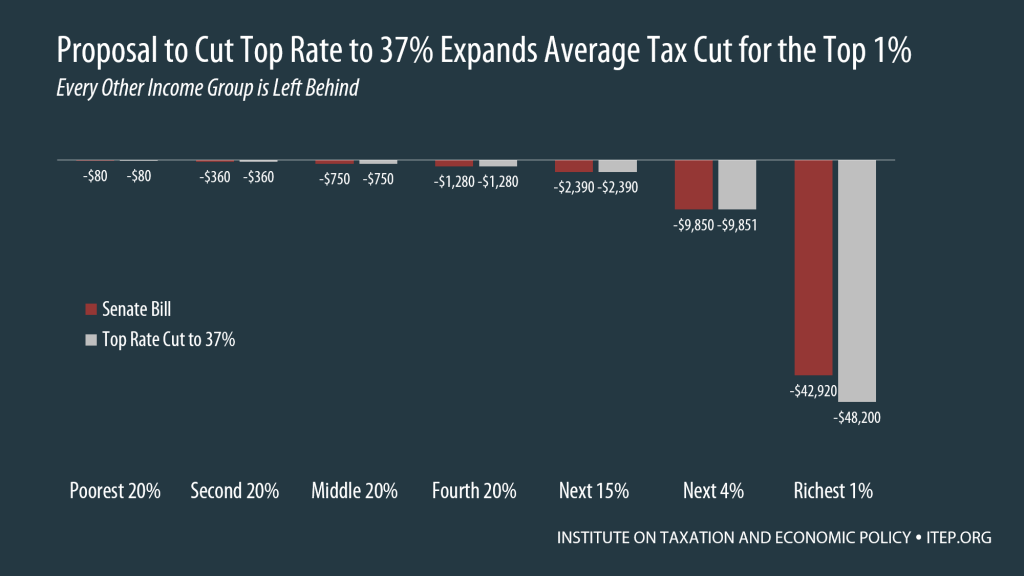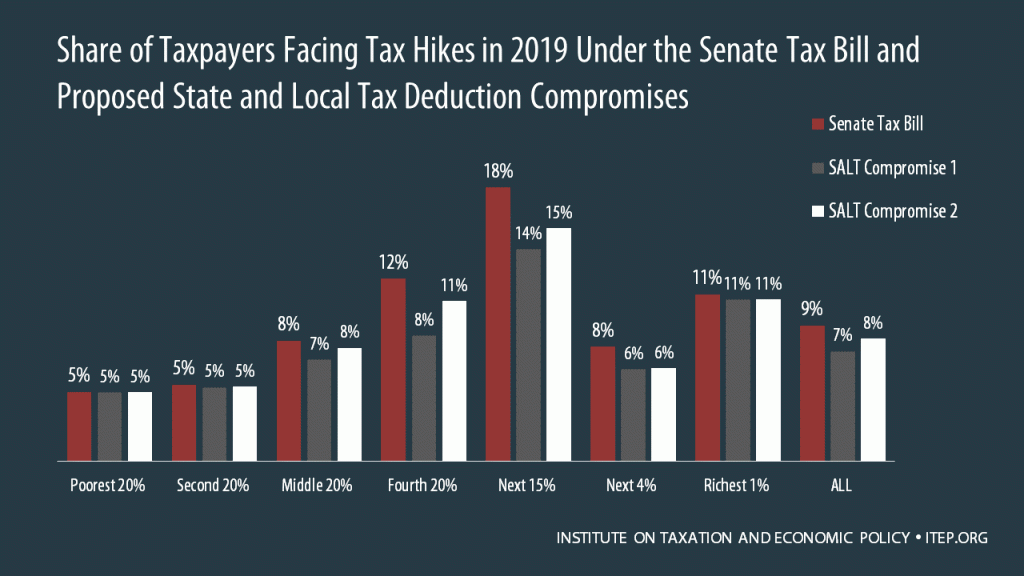Republican leaders who rejected a proposal to have corporations pay a single percentage point higher tax rate to benefit families with children have tapped the exact same source of savings to provide more breaks for the richest 1 percent of taxpayers. The table below compares the number and share of households nationally and in all 50-states who would benefit from the proposal to reduce taxes for working families with children versus the ”compromise” to cut the top individual tax rate — below either the House or Senate version – to 37 percent for couples with incomes above $1 million.
During the Senate debate earlier in the month, Senators Marco Rubio and Mike Lee introduced an amendment to further expand and improve the Child Tax Credit (CTC). The amendment would have offset the cost by cutting the official corporate tax rate from 35 percent to about 21 percent, rather than 20 percent as in the underlying bill which eventually passed the Senate.
Their proposal would have allowed low-income working parents to claim the refundable part of the credit in an amount equal to 15.3 percent of their earnings (instead of the current 15 percent), starting with the first dollar earned (instead of earnings exceeding $3,000 as under current law) and lifted the refundability cap. While this proposal would not have prevented the overall bill from being a major giveaway to the wealthy and profitable corporations, it did represent a significant attempt to improve the CTC for millions of low-wage working families who were left behind in the House and Senate proposals.
The Rubio-Lee amendment was rejected in large part because Senate leadership claimed that a corporate tax rate set anywhere above 20 percent was a non-starter. Yet now, the same negotiators have agreed to set the corporate tax rate at 21 percent to pay for other “compromises,” including: reducing the top personal income tax rate to 37% , allowing taxpayers to deduct combined state and local taxes capped at $10,000 (currently both bills only allow property taxes), and lifting the Alternative Minimum Tax exemption level.
To pay for these changes, lawmakers have agreed to set the corporate tax rate at 21 percent vs. 20 percent and by some reports they would also have the tax changes that benefit families and individuals expire in 2024 — a year earlier than the Senate bill.
The Rubio-Lee CTC proposal and the rate reduction to 37% roughly cost the same amount- around $8-$9 billion annually. Yet, Republican lawmakers have decided to prioritize deeper tax cuts for the richest 518,000 households rather than providing more than 16.7 million low- and moderate- income working families largely left behind in the House and Senate proposals a much-needed boost.







